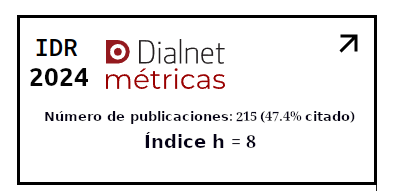Job skills and the relaxation effect: impact on project delays in transport and logistics companies
Keywords:
Industrial management, job skills, project delays, planningAbstract
This paper analyzes the behavior of variable job skills in industrial projects that cause delays and, consequently, economic losses due to the inability to deploy elements or services efficiently. This delay established as a relaxation effect is generated by the low intensity of work of the collaborator as a result of his attitude, as established by Valero (2001), which generates the extension of the planned time periods. A relational-descriptive and explanatory investigation was carried out, considering a population of 40 workers of the company Swanberg Brothers - Bolivia, whose objective was to establish the degree of relationship of labor competencies with the delays generated by the relaxation effect in the projects. transportation and logistics in the oil industry; To determine this relationship, an 8-variable survey adapted from the author Martha Alles was obtained. The results showed that the workers appeared in most of the labor competence variables deficient qualifications, also that 80 % of the workers presented a high tendency to present this effect. The relationship between Labor Competences/Relaxation Effect is established, which is inversely proportional, that is, the greater the labor competence, the lower the effect, which translates into less delay on the part of the worker in the performance of his functions.
Downloads
References
Alles, M. (2002). Gestión por competencias. Buenos Aires: edGranica.
Behar, D. (2008). Metodología de investigación. España: Shalom.
Bernal, C. (2010). Metodología de la investigación: Administración, (3 ed.). Colombia: Pearson. doi:978-958-699-128-5
Bertram, D. (2008). Likert Scales... are the meaning of life. Topic report. Topic Report, 1-10. http://poincare.matf.bg.ac.rs/~kristina/topic-dane-likert.pdf
Cantú, A., López, M., & Peirone, P. (2018). Análisis de los factores que afectan la productividad de obras civiles. I Jornada de Divulgación de la Carrera de Ingeniería Civil. Facultad de Ingeniería. Universidad Nacional de Cuyo (pp. 1-6). Argentina: Universidad Nacional de Cuyo.
Kumar, P., & Raj, P. (2015). Delay analysis of projects and effects of delays in the mining/manufacturing industries. IOSR Journal of Mechanical and Civil Engineering, 12(6), 61-71. http://www.iosrjournals.org/iosr-jmce/papers/vol12-issue6/Version-4/I012646171.pdf
López, F. (2018, 1 de marzo). Línea de tendencia. https://economipedia.com/definiciones/linea-de-tendencia.html
Menéndez, M. (2019, 8 de junio). Cómo mejorar la confianza en el trabajo. https://www.psicologia-online.com/como-mejorar-la-confianza-en-el-trabajo-3894.html
Sapag Chain, N., & Sapag Chain, R. (2008). Preparación y evaluación de proyectos (5 ed.). Bogotá: Mc Graw Hill.
Sapag Chain, N., Sapag Chain, R., & Sapag Puelma, J. M. (2014). Preparación y evaluación de proyectos. México: Mc Graw Hill.
Seung Heon, H., Sungmin, Y., Hyoungkwan, K., Young Hoon, K., Hyung Keun, P., & Sang Hyun, L. (2009). Analyzing schedule delay of mega project: Lessons learned from Korea train express. IEEE Transactios on Engineering Management, 56(2), 243-256. https://www.researchgate.net/publication/224399301_Analyzing_Schedule_Delay_of_Mega_Project_Lessons_Learned_From_Korea_Train_Express
Sinnaps. (2020). Elementos, etapas y objetivos de la planificación. https://www.sinnaps.com/blog-gestion-proyectos/proceso-de-planificacion
Swanberg Bros. Bolivia Ltda. (2018, Mayo). Swanberg-bolivia. http://www.swanberg-bolivia.com
Trauner, T. (2009). Construction delays understanding them clearly, analyzing them correctly (2 ed.). Orlando: Elsevier.
Valero, F. V. (2001). Planificación de proyectos de plantas industriales. Madrid: Universidad de Alcalá.








